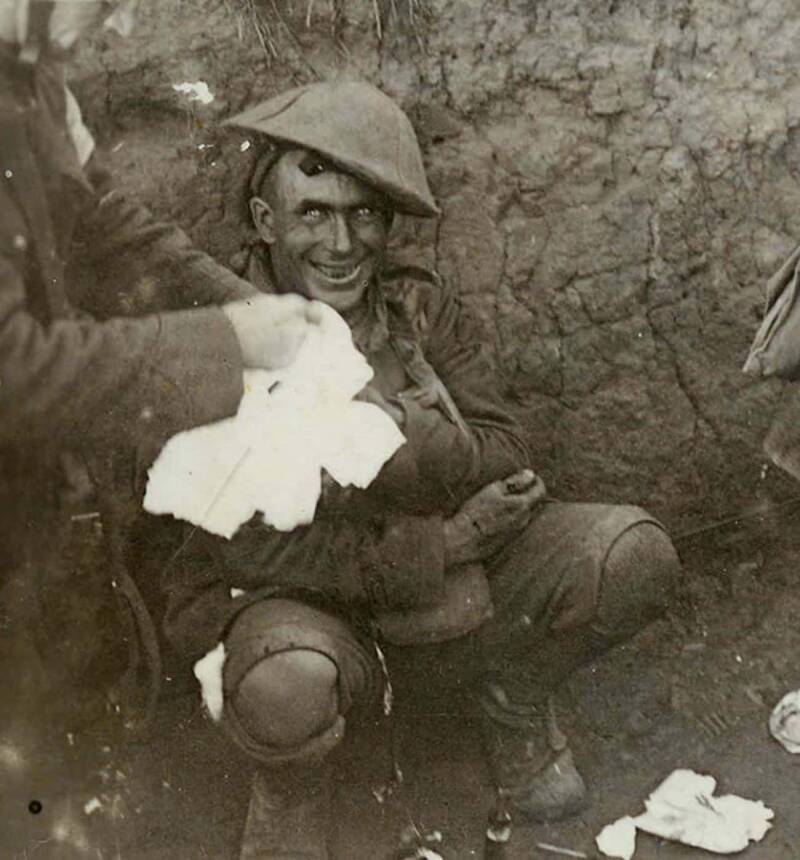At the end of World War 1, more than 80,000 soldiers were treated for what became known as ‘shell shock’. Traumatised by what they had witnessed and experienced under the brutal conditions and sheer horror of the trenches, some came back mute or blind with no apparent physical cause, others found that they were unable to eat or sleep. I believe that my paternal grandfather was one such sufferer, but he died before I was born, and it was one of those things that the family never talked about.
Such was the lack of understanding and empathy, that tragically many of the shell-shocked were branded as cowards and deserters and executed by their own side. Others were subjected to often barbaric ‘treatment’ on their return. One such treatment was to bury those who had been trapped in trenches and make them dig themselves out – a form of exposure therapy that maybe had more merit than was understood at the time.
Today we refer to this condition as Post-Traumatic Stress Disorder (PTSD) and we understand it a bit better. About 20% of people who suffer a traumatic event in their lives will develop this condition – about the same ratio as those war veterans. It’s not really understood why some people are affected and others not, but it’s thought that there is some genetic influence.
So, how would you know if you have PTSD? Usually, the following can give a good indication:
- When you think about the event, it seems recent (or even current). It doesn’t fade over time like other memories.
- You don’t really feel that you can talk about it.
- You are hypervigilant most of the time, living with a heightened sense of awareness.
- Things that are seemingly unrelated to the event cause you to experience flashbacks or make you disproportionately anxious or panicky.
PTSD is a survival mechanism that was vital to us in past times, when our lives were frequently threatened by predators. It makes sense that if we survive atraumatic experience, our brain makes us extra vigilant in future when a similar set of circumstances arrive. So, if someone was attacked by a tiger at a drinking lagoon, they are conditioned to be anxious and watchful when they next go to that lagoon, or any lagoon, or anytime they take a drink! The thing is - our brains are risk averse by design and don’t limit this reaction to the exact same set of circumstances, which explains why some war veterans are triggered by fireworks or by cars backfiring.
Traumatic memories are tagged with a high level of emotion (such as fear) and are recalled and matched to current circumstances by the emotional part of brain. This happens a good half a second before the thinking part gets a look in. That may not seem very long, but it actually is when considered in terms of the processing speed of the brain. If you were to hear a loud bang in the next room, you would be instantly pumped with adrenaline and running away before you start to ponder whether a bomb had gone off or whether it was a gas explosion, or something else ...
Living with PTSD can be debilitating, but it’s treatable. In simple terms, the traumatic memory is ‘stuck’ in the wrong part of the brain (the amygdala) and as such, it hasn’t been turned into a narrative memory that will fade over time. By getting the brain to reprocess the memory in some way, it can be released from the amygdala. This explains why the re-burying of WW1 soldiers who were buried alive in trenches sometimes worked. The memory isn’t forgotten, but it’s detached from the strong emotion that came with it and de-conditioned from the defence mechanism that gives rise to so much anxiety.
Today there are techniques that are far less barbaric than burying people alive and some of them don’t require the person to re-live the memory conversationally. Common techniques are Eye Movement and Desensitization Reprocessing Therapy (EMDR), Emotional Freedom Tapping (EFT) and Rewind.
In my personal opinion, the most effective of these is Rewind. It can be truly life transforming. If you are shell shocked, get in touch.
